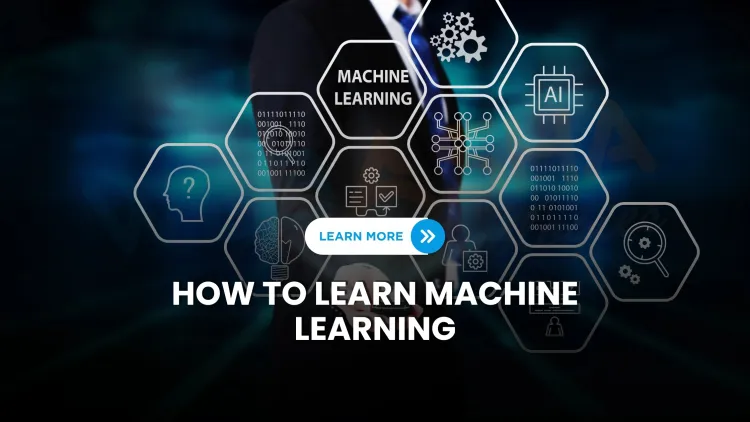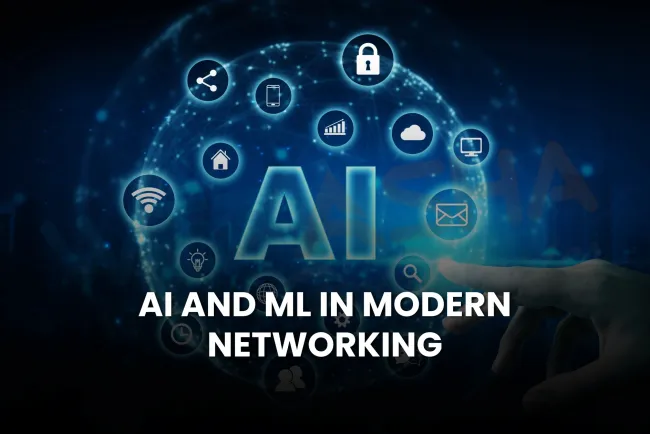What is the best way to master machine learning in 2025? The Detailed Guide
To master machine learning in 2025, follow a structured roadmap that includes learning Python, understanding core ML concepts like supervised and unsupervised learning, practicing with real datasets, and working on hands-on projects using tools like Scikit-learn, TensorFlow, and PyTorch. Joining communities, contributing to open-source, and staying updated with new research are also essential for achieving true ML mastery.

Table of Contents
- What is Machine Learning Mastery?
- Why Is Mastering Machine Learning Important in 2025?
- What Are the Key Concepts You Must Know?
- Tools and Languages for Machine Learning Mastery
- What Is the Ideal Learning Path for Mastery?
- How Do You Practice for Machine Learning Mastery?
- Common Challenges in Machine Learning Mastery
- Best Resources to Master Machine Learning
- Career Opportunities After Machine Learning Mastery
- Final Thoughts: How Long Does It Take to Master Machine Learning?
- Conclusion
- Frequently Asked Questions (FAQs)
What is Machine Learning Mastery?
Machine Learning Mastery refers to a deep and practical understanding of machine learning concepts, tools, algorithms, and real-world applications. It involves moving beyond theory into hands-on experience with data, building predictive models, and optimizing performance to solve real problems.
Whether you're a student, developer, or data enthusiast, mastering ML can transform your career trajectory.
Why Is Mastering Machine Learning Important in 2025?
In today’s data-driven world, machine learning powers search engines, voice assistants, recommendation systems, fraud detection, self-driving cars, and more. By 2025, industries are expected to increasingly rely on AI-powered insights—making ML skills one of the most sought-after tech competencies.
Mastering ML helps you:
-
Design smarter products
-
Predict customer behavior
-
Automate complex tasks
-
Enhance cybersecurity defenses
-
Drive business decisions through data
What Are the Key Concepts You Must Know?
To achieve mastery, you must understand and apply:
-
Supervised Learning (Regression, Classification)
-
Unsupervised Learning (Clustering, Dimensionality Reduction)
-
Semi-supervised and Reinforcement Learning
-
Neural Networks and Deep Learning
-
Model Evaluation & Cross-validation
-
Bias-Variance Tradeoff
-
Overfitting vs. Underfitting
Tools and Languages for Machine Learning Mastery
Here are essential tools and libraries every ML master uses:
| Tool / Library | Purpose |
|---|---|
| Python | Primary language for ML development |
| NumPy / Pandas | Data manipulation and analysis |
| Scikit-learn | Classic ML algorithms and models |
| TensorFlow / PyTorch | Deep learning and neural networks |
| Jupyter Notebooks | Interactive coding and data visualization |
| Matplotlib / Seaborn | Visual data exploration |
What Is the Ideal Learning Path for Mastery?
Follow this structured roadmap to become proficient:
-
Learn Python – foundational for all ML work
-
Understand Statistics & Probability
-
Grasp Linear Algebra and Calculus basics
-
Master ML algorithms – via Scikit-learn
-
Explore Deep Learning – via TensorFlow or PyTorch
-
Work on Real Projects – Kaggle, GitHub, or internships
-
Study Case Studies – from healthcare, finance, etc.
-
Stay Updated – follow research, blogs, and papers
How Do You Practice for Machine Learning Mastery?
Theory without practice is half-knowledge.
To truly master ML:
-
Participate in Kaggle competitions
-
Clone and improve open-source ML projects
-
Build personal datasets and solve unique problems
-
Contribute to AI/ML communities or forums
-
Keep a project portfolio on GitHub
Common Challenges in Machine Learning Mastery
Many learners get stuck due to:
-
Information overload (too many resources)
-
Lack of structured practice
-
Weak math foundation
-
Fear of coding or algorithms
-
Skipping real-world implementation
Tip: Take one concept at a time. Build from it. Mastery is built brick by brick.
Best Resources to Master Machine Learning
-
Books: "Hands-On ML with Scikit-Learn, Keras & TensorFlow", "Deep Learning with Python"
-
Courses: Andrew Ng’s ML (Coursera), Fast.ai, MIT’s OpenCourseWare
-
Communities: Reddit ML, Stack Overflow, GitHub
-
Practice: Kaggle, HackerRank (ML challenges), Papers with Code
Career Opportunities After Machine Learning Mastery
Once you've mastered ML, you can become a:
-
Machine Learning Engineer
-
Data Scientist
-
AI Researcher
-
NLP Engineer
-
Computer Vision Specialist
-
Predictive Analyst
The average ML engineer salary in 2025 ranges between ₹12–30 LPA in India and $120K–$180K globally based on experience and domain.
Final Thoughts: How Long Does It Take to Master Machine Learning?
With consistent effort, most learners can gain intermediate-level skills in 6–12 months. True mastery, involving deep research or industry-level innovation, often takes 2–3 years of continuous learning, experimentation, and project work.
Conclusion
Machine Learning Mastery isn’t about knowing everything—it’s about knowing how to learn, apply, and innovate. With the right mindset, resources, and practice, you can solve real problems, contribute to the AI revolution, and future-proof your career.
FAQs
What does machine learning mastery mean?
Machine learning mastery refers to achieving a high level of understanding and skill in machine learning concepts, tools, and real-world applications through consistent learning and hands-on practice.
How long does it take to master machine learning?
On average, it takes 6–12 months to become proficient and 2–3 years for full mastery with deep practical and research-level experience.
Is Python necessary for machine learning mastery?
Yes, Python is the most widely used language in ML due to its vast libraries like NumPy, Pandas, Scikit-learn, TensorFlow, and PyTorch.
Can I master machine learning without a math background?
While basic math is essential (linear algebra, probability, statistics), many concepts can be learned through applied coding examples and visualization.
What are the best tools to learn for ML in 2025?
Key tools include Python, Scikit-learn, TensorFlow, PyTorch, Jupyter Notebooks, and visualization tools like Matplotlib and Seaborn.
Are online courses enough to master ML?
Online courses are a great start, but mastery comes from real-world project work, experimentation, and continuous problem-solving.
What is the best book for machine learning mastery?
“Hands-On Machine Learning with Scikit-Learn, Keras, and TensorFlow” by Aurélien Géron is highly recommended for beginners and intermediate learners.
Should I participate in Kaggle competitions to improve?
Yes, Kaggle provides real datasets and problem statements that are perfect for sharpening your skills and building a public portfolio.
Can I get a job after mastering machine learning?
Yes, job roles include Machine Learning Engineer, Data Scientist, AI Researcher, and more—across industries like finance, healthcare, retail, and cybersecurity.
Is machine learning mastery the same as data science?
Not exactly. Machine learning is a core component of data science, but ML mastery focuses more deeply on predictive modeling and algorithm development.
What are some common ML interview questions?
Expect questions on overfitting, cross-validation, types of ML algorithms, feature selection, and deployment of models.
Do I need to learn deep learning to master ML?
Yes, deep learning is an important part of advanced machine learning, especially for fields like image recognition and NLP.
What projects help in mastering machine learning?
Projects like house price prediction, spam detection, sentiment analysis, and image classification are ideal for practice.
What is the future of machine learning in 2025?
ML continues to grow rapidly, with increasing use in automation, generative AI, cybersecurity, healthcare diagnostics, and personalized services.
Is machine learning mastery worth it?
Yes, it offers high-paying jobs, future-ready skills, and the ability to build intelligent solutions that solve real-world problems.
What certifications help with ML mastery?
Certifications from Coursera, Google Cloud ML, IBM AI Engineering, and TensorFlow Developer are valuable for showcasing your skills.
How important is model evaluation in ML mastery?
Very important—techniques like confusion matrix, ROC curve, precision-recall help you understand model performance and optimize results.
Can I master ML through self-study?
Absolutely. With the right resources, discipline, and consistent practice, self-study is a highly effective path to ML mastery.
What are the key challenges in mastering ML?
Challenges include staying consistent, avoiding information overload, building practical projects, and understanding the math behind algorithms.
What are the most in-demand ML skills in 2025?
Skills in neural networks, NLP, computer vision, time series analysis, and ML model deployment are highly sought after.
How to build a portfolio for ML jobs?
Host projects on GitHub, write blogs about your models, participate in Kaggle, and document your learning process.
Which industries are hiring ML experts?
Industries include fintech, healthcare, e-commerce, cybersecurity, manufacturing, and autonomous systems.
What is transfer learning in ML?
Transfer learning is a technique where a model trained on one task is reused as the starting point for a new, related task.
Are there ML projects for beginners?
Yes, beginner-friendly projects include loan default prediction, iris classification, and Netflix movie recommendation systems.
What is the difference between supervised and unsupervised learning?
Supervised learning uses labeled data; unsupervised learning identifies patterns in unlabeled data.
Should I know cloud platforms for ML mastery?
Yes, knowing platforms like AWS SageMaker, Google AI Platform, and Azure ML can help in deploying and scaling your models.
Can I learn ML without a computer science degree?
Yes, many successful ML professionals are self-taught or come from other academic backgrounds like mathematics or economics.
How often should I practice ML?
Consistent practice—coding daily, solving challenges weekly, and working on real projects—is key to mastery.
Is reinforcement learning necessary for ML mastery?
While not required for all roles, reinforcement learning is critical in fields like robotics, game AI, and dynamic optimization.
How do I stay updated in ML?
Follow researchers on Twitter, read arXiv papers, subscribe to newsletters like “The Batch” or “Towards Data Science,” and join communities.
What’s the best way to learn ML in 2025?
Combine online courses, real-world projects, books, Kaggle, and a focused roadmap that emphasizes application over just theory.











![Top 10 Ethical Hackers in the World [2025]](https://www.webasha.com/blog/uploads/images/202408/image_100x75_66c2f983c207b.webp)



![[2025] Top 100+ VAPT Interview Questions and Answers](https://www.webasha.com/blog/uploads/images/image_100x75_6512b1e4b64f7.jpg)







